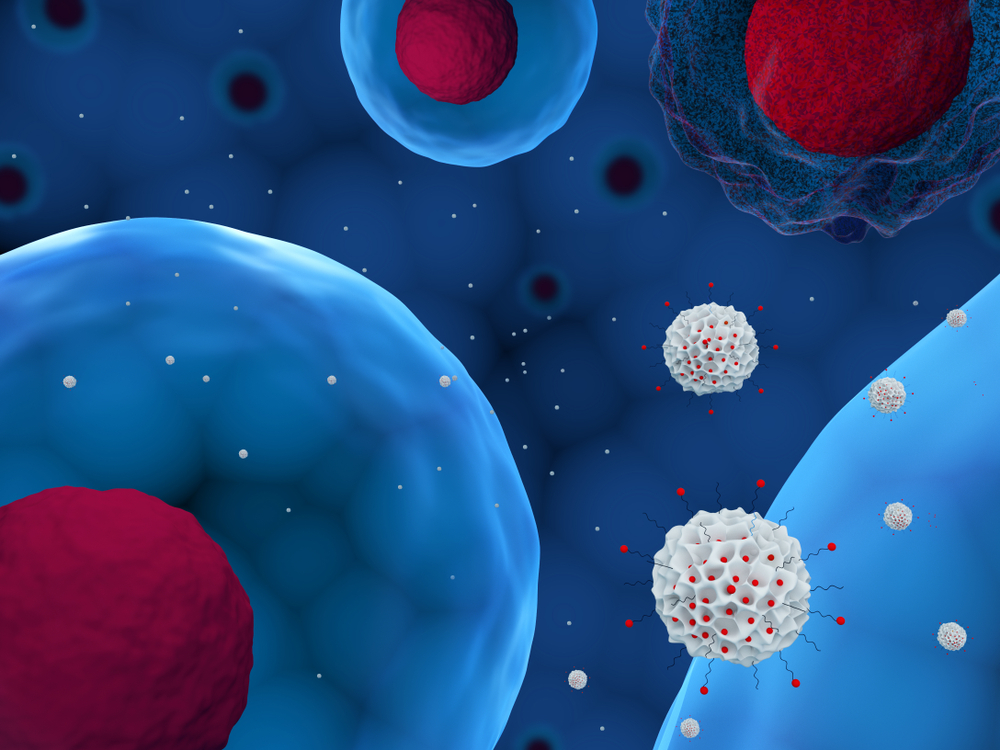Study Links Immune Regulatory Molecule NEAT1 to Primary Sjogren’s
Written by |

An immune regulatory molecule known as NEAT1 is produced at greater levels in the immune T-cells of people with primary Sjogren’s syndrome, and these levels seem to correlate with disease duration, a study has found.
The findings suggest that NEAT1 may be used as a new diagnostic marker and investigated as a therapeutic target for Sjogren’s syndrome.
The study, “LncRNA Neat1 positively regulates MAPK signaling and is involved in the pathogenesis of Sjögren’s syndrome,” was published in the journal International Immunopharmacology.
Sjogren’s syndrome is an autoimmune disease in which the immune system mistakenly attacks glands that produce tears and saliva. When the condition occurs alone, it is called primary Sjogren’s syndrome (pSS), and when accompanied by other autoimmune diseases, such as rheumatoid arthritis and lupus erythematosus, it is called secondary Sjogren’s syndrome.
A hallmark of primary Sjogren’s is the infiltration of immune cells known as T-cells into these glands, which participate in disease development by stimulating inflammation. However, the underlying mechanism of this process is still unclear.
Molecules called long noncoding RNAs (lncRNAs), long RNA molecules that control protein production within cells, are involved in diverse biological and disease processes. Studies have implicated lncRNAs in the onset and development of autoimmune diseases.
The NEAT1 lncRNA is associated with the autoimmune conditions multiple sclerosis and lupus, but little is known about the role of NEAT1 in people with Sjogren’s.
To investigate this further, a team of researchers based at the Shanghai Jiao Tong University School of Medicine in China analyzed NEAT1 in immune cells isolated from people with Sjogren’s.
The study included 20 female primary Sjogren’s syndrome patients, 43 years of age on average, and 10 healthy control subjects as a comparison (also female), average 41 years of age. No patients received immunosuppressive or immunomodulatory therapies that may influence the results during the study.
Blood samples were drawn, and three types of immune cells were isolated: CD4+ T-cells, which orchestrate immune responses, CD8+ T-cells, which identify and attack infected cells, and CD19+ B-cells, which produce antibodies.
The analysis found significantly higher levels of NEAT1 in both CD4+ and CD8+ T-cells of pSS patients compared to cells isolated from control subjects. No significant difference in NEAT1 expression was observed in CD19+ B-cells between the patients and controls.
NEAT1 levels in CD4+ T cells showed a positive correlation with disease duration, in which patients with the highest NEAT1 levels had a longer disease course.
In contrast, NEAT1 levels in CD8+ T-cells correlated negatively with disease duration, and positively with other clinical measures, including rheumatoid factor and IgA antibodies, suggesting that “NEAT1 might participate in the pathogenesis of [Sjogren’s syndrome],” the researchers wrote.
Based on these results, the team used a model system known as Jurkat T-cells, commonly used to study T-cell processes. Here, Jurkat T-cells were stimulated to drive NEAT1 production then analyzed to detect related cellular processes.
NEAT1 expression was increased after stimulation by way of a pathway known as TCR-p38 and led to the downstream increase of two pro-inflammatory signaling proteins called CXCL8 and TNF-alpha. Blocking NEAT1 production led to a decrease in these proteins.
Further analysis found NEAT1 stimulated these pro-inflammatory proteins via the MAPK pathway by identifying increases in two key MAPK proteins, p38 and ERK1/2.
Finally, to link these findings to Sjogren’s syndrome, the expression of NEAT1-induced factors was significantly higher in patient-isolated CD4+ and CD8+ T cells than in controls. Furthermore, a correlation was identified between NEAT1 and NEAT1-induced factors, such as CXCL8 and TNF-alpha, in CD4+ and CD8+ T-cells.
“This study provides a new understanding of the pathogenesis of pSS, revealing that the lncRNA NEAT1 may be a positive regulator in pSS patients,” the researchers concluded.
“Moreover, our results suggest that the lncRNA NEAT1 can be used as a new diagnostic biomarker and a vital therapeutic target for the treatment of autoimmune diseases, including pSS,” they added.





